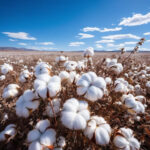As the summer days approach, the rising temperatures pose a challenge not only for humans but also for animals. It is essential for animal farmers to take special care of their livestock during this season to prevent illnesses and maintain productivity. By focusing on basic care and feeding practices, animals can be safeguarded from falling ill during the summer months.
Effect of Rising Temperature on Livestock
External and Internal Heat
Animals experience both external heat from the sun and internal heat generated through metabolic activities like food digestion. The thermoneutral zone for buffaloes and cows is between 5 to 25 degrees Celsius. In this zone, animals maintain a normal body temperature by expelling heat through sweat.
Impact of Summer on Animal Health
Reduction in Food Intake
During summer, animals may reduce their food intake to maintain a normal temperature, leading to a decline in milk production, fat percentage in milk, fertility, and immune system function. Physical symptoms such as increased breathing rate, panting, and increased saliva production are common.
Main Diseases in Summer and Prevention
Heat Stroke
Symptoms:
- Increased body temperature
- Restlessness
- Excessive sweating and saliva secretion
- Foam around the mouth
- Redness of eyes and nose
- Nose bleeding
- Loose stools
- Shortness of breath
- Increased heart rate
- Reduced or stopped eating
Treatment and Precautions:
- Ensure proper ventilation and space in animal shelters
- Apply ice or cold water packs to cool the animal
- Provide more green fodder and less grains
- Avoid direct exposure to air
- Bathe the animal with cold water
- Install fans, coolers, and sprinkler systems in shelters
- Keep animals indoors during the day
Indigestion
Symptoms:
- Reduced or stopped eating
- Lethargy
- Presence of undigested grains in dung
Treatment:
- Administer a paste made of onion, garlic, cumin, turmeric, jaggery, and ginger
- Dissolve sweet soda in water and give it to the animal
- Consult a veterinarian if symptoms persist
Infectious Diseases and Prevention
Infectious diseases are more prevalent during the rainy season, but heat stress can weaken animals’ immune systems, making them more susceptible. Vaccination during summer can help prevent diseases like throat and mouth infections, lameness, and fever.

Arrangement of Fodder for Animals in Summer
Green fodder should be provided in larger quantities during summer, as it is both nutritious and hydrating. Animal rearers should plant crops like moong, maize, cowpea, and barbati in March and April to ensure a steady supply of green fodder. It is important to provide clean, fresh water to animals multiple times a day and to bathe them regularly with cold water.
Advertisement
Area-specific mineral mixtures should be provided to animals daily to maintain immunity and increase feed intake. Dairy cows suffering from heat stress require additional sodium and potassium, which can be added to their feed.
Conclusion
Heat stress during the summer season can lead to a reduction in production and reproduction in Indian dairy animals. While some level of stress is unavoidable, following these practices can help reduce its effects and ensure the well-being of animals.
Click Here For More Information
FAQs (Frequently Asked Questions)
Q1: How does the summer heat affect animals?
A: Summer heat can lead to reduced food intake, decreased milk production, and increased susceptibility to diseases due to heat stress.
Q2: What are the signs of heat stroke in animals?
A: Signs of heat stroke in animals include increased body temperature, restlessness, excessive sweating, and panting.
Q3: How can I prevent heat stroke in my animals?
A: To prevent heat stroke, provide proper ventilation in animal shelters, offer plenty of water, and provide shade or cooling measures like fans or sprinklers.
Q4: What should I feed my animals during the summer?
A: During the summer, feed animals more green fodder and less grains. Ensure they have access to clean, fresh water at all times.
Q5: How can I help my animals stay cool during hot weather?
A: Keep animals indoors during the hottest parts of the day, provide regular baths with cold water, and avoid overworking them.










